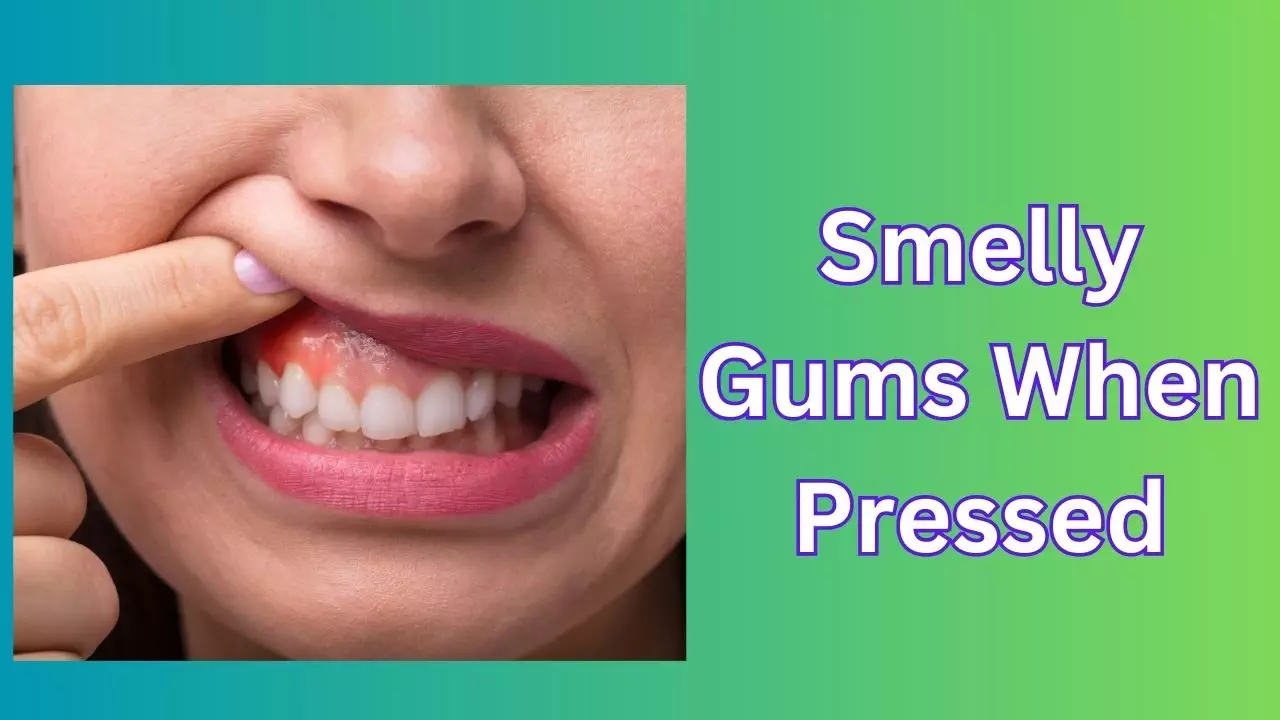
Smelly Gums When Pressed: Say Goodbye to Smelly Gums and Bad Breath!
Are you tired of dealing with the discomfort and embarrassment of smelly gums? Don’t worry, you’re not alone. Smelly gums, also known as halitosis or bad breath originating from the gums, is a common problem that affects many people. But fear not, because in this comprehensive guide, we will explore the potential causes of smelly gums when pressed and provide you with valuable insights on how to effectively address this issue.
Potential Causes of Smelly Gums
Smelly gums can be a result of various factors, including gum disease, poor oral hygiene, certain foods and drinks, and smoking or tobacco use. Let’s delve into each of these causes in detail:
-
Gum Disease and Oral Infections
Gum disease, also known as periodontal disease, is a common culprit behind smelly gums. This condition occurs when harmful bacteria accumulate along the gumline, leading to inflammation and infection. The presence of these bacteria can result in unpleasant odors.
-
Poor Oral Hygiene
Maintaining good oral hygiene practices is crucial for preventing smelly gums when pressed. Inadequate brushing and flossing allow plaque and food particles to build up on your teeth and gums, creating an environment where bacteria thrive and cause bad breath.
-
Impact of Certain Foods and Drinks
The foods we consume can significantly affect our breath odor. Strong-smelling foods like garlic, onions, spices, or coffee can leave lingering smells in your mouth even after brushing your teeth.
-
Smoking and Tobacco Use
Tobacco products contain chemicals that not only stain your teeth but also contribute to bad breath when pressing on the gums. Smoking irritates the tissues in your mouth, increases bacterial growth, reduces saliva production (which helps cleanse the mouth), resulting in unpleasant odors.
Why Addressing Smelly Gums is Crucial
Now that we understand the potential causes of smelly gums when pressed, let’s explore why it’s crucial to address this issue:
-
Impact on Oral Health
Smelly gums often indicate gum disease or oral infections. If left untreated, these conditions can cause inflammation and damage to the tissues supporting your teeth, leading to tooth loss. By addressing the underlying causes of smelly gums, you can prevent further deterioration of your oral health.
-
Potential Effect on Overall Health
Poor dental hygiene has been linked to various systemic diseases, including heart disease, diabetes, respiratory infections, and certain types of cancer. By managing smelly gums promptly, you not only protect your mouth but also reduce the risk of developing these serious health issues.
-
Social Implications
Experiencing bad breath due to smelly gums can be embarrassing and affect your self-confidence in social situations. Addressing smelly gums not only improves your oral health but also enhances your overall quality of life by boosting self-esteem and promoting positive interactions with others.
Treatment Options for Smelly Gums
Now that you understand the importance of addressing smelly gums, let’s explore the available treatment options:
-
Professional Cleaning
A thorough dental cleaning is a crucial first step in treating smelly gums. This process removes plaque and tartar buildup, eliminating bacteria that contribute to bad breath and improving overall oral health.
-
Medications and Mouthwashes
Your dentist may prescribe medications or recommend specific mouthwashes containing antibacterial agents to target the underlying causes of gum odor. It’s essential to follow your dentist’s instructions carefully when using these treatments.
-
Lifestyle Changes
Making lifestyle changes such as quitting smoking or maintaining good oral hygiene practices like regular brushing and flossing can also help alleviate smelly gums by preventing bacterial growth.
Post-Treatment Care and Maintenance
After receiving treatment for smelly gums, it’s important to prioritize post-treatment care to maintain fresh-smelling gums. Here are some tips:
-
Schedule Regular Dental Check-ups
Visit your dentist every six months for a thorough examination, cleaning if necessary, and addressing any concerns or issues that may arise.
-
Maintain a Daily Oral Hygiene Routine
Brush twice a day with fluoride toothpaste and floss at least once a day to remove plaque buildup and prevent gum disease.
-
Consider Dietary Changes
Avoid excessive consumption of sugary or acidic foods as they can promote bacterial growth in the mouth. Instead, opt for a balanced diet rich in fruits, vegetables, lean proteins, and whole grains.
-
Stay Hydrated
Drinking plenty of water throughout the day helps keep saliva production at an optimal level to neutralize acids produced by bacteria in the mouth.
-
Follow Additional Instructions from Your Dentist
Use antibacterial mouthwashes or take prescribed medications as directed based on your specific needs after treatment.
Taking the Next Step: Booking Your Appointment
Now that you have a better understanding of how to address smelly gums, it’s time to take action towards better oral health by scheduling an appointment with a dental care provider who specializes in gum-related issues. Here are some tips on booking your appointment:
-
Research Dental Care Providers
Research dental care providers in your area based on location, reviews from previous patients, and services offered.
-
Contact the Chosen Dental Practice
Contact the chosen dental practice either by phone or through their website’s contact form to discuss concerns regarding smelly gums during your appointment.
-
Prepare Necessary Documents
Prepare necessary documents such as relevant medical records or insurance information required during your initial consultation.
-
Be Proactive
Be proactive about taking charge of your oral health – addressing smelly gums is crucial not only for maintaining good oral hygiene but also preventing potential complications affecting overall well-being.
Taking Action for Better Oral Health
Addressing smelly gums and bad breath is crucial for maintaining optimal oral health. When your gums are swollen or producing a foul odor, it could be a sign of periodontal disease or gingivitis. These conditions can lead to bone loss and even affect the taste in your mouth. If you hate the smell coming from your mouth, it’s important to take action. This includes thorough brushing, flossing, and using antibacterial mouthwash to manage bacterial growth that causes odors.
Additionally, supplementing with sealants can help stop bacteria from producing gases that contribute to bad breath. Research has shown that freshening up your oral hygiene routine can significantly increase levels of confidence and overall well-being. It depends on where you’re at with managing these common dental diseases. By seeking professional help and taking these steps toward better oral health now ensures fresh breath and confident smiles!
Don’t let smelly gums hold you back from enjoying a healthy and vibrant life. Take action today and book your appointment with a trusted dental care provider.









